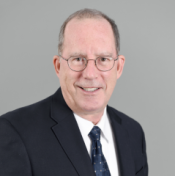$5M grant to allow ASU to help train medical professionals in areas of critical need

iStock photo.
The College of Health Solutions at Arizona State University has been awarded a $5 million grant from the Department of Health and Human Services’ Agency for Healthcare Research and Quality to launch the Southwest Safety Net Embedded Scientist Training and Research Center, or SSNE-STaR.
The team will train embedded scholars to develop evidence-based practices in health systems that care for historically disadvantaged populations with an emphasis on the needs of Hispanic, Native Americans, people experiencing homelessness and other underserved groups.
The initiative will support the scientific training and professional development of doctors and other health care professionals embedded in Arizona safety net organizations.
College of Health Solutions Professor William Riley leads the effort along with Valleywise Health Executive Vice President and Chief Clinical Officer Dr. Michael White. Other College of Health Solutions faculty playing prominent roles include Professor Marisa Domino, Professor Punam Ohri-Vachaspati, Clinical Associate Professor Matthew Martin and Dr. Anita Murcko.
“The team at CHS will develop a curriculum and mentorship program for clinicians embedded within local safety net health care organizations, allowing the clinicians to learn about how to design, conduct and implement evidence-based medicine,” Riley said.
The SSNE-STaR joins academic and safety net organizations including inpatient and ambulatory care health systems, federally qualified health centers, tribal health centers, community partners and other stakeholders. That diverse coalition will focus on primary care, maternal care and disabilities as priorities.
In addition to Valleywise Health and Phoenix Children’s Hospital, other potential partners may include Native Health of Phoenix and Inter Tribal Council of Arizona.
The SSNE-STaR will also recruit embedded scholars from throughout the state. Scholars will be selected from medical professionals throughout the Valleywise Health system as well as other safety net organization partners, including Native American health centers and other regional organizations.
“We will train scholars embedded in safety net health care organizations to generate evidence to improve health outcomes and reduce disparities in care,” Riley said.
More Health and medicine

Reducing waste in medical settings
Health care saves lives, but at what cost? Current health care practices might be creating a large carbon footprint, according to ASU Online student Dr. Michele Domico, who says a healthier…

ASU offers bilingual counseling to Spanish speakers
Arizona is one of the five states in the nation with the highest percentage of Hispanic residents, according to the U.S. Department of Health and Human Services Office of Minority Health, and …

College of Health Solutions launches first-of-its-kind diagnostics industry partnership to train the workforce of tomorrow
From 2007 to 2022, cytotechnology certification examinees diminished from 246 to 109 per year. With only 19 programs in the United States, the cytology workforce that stands at the front line of…


